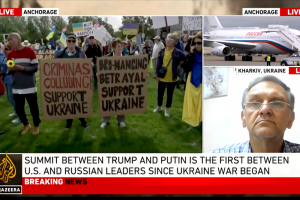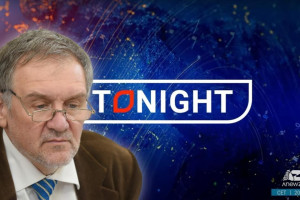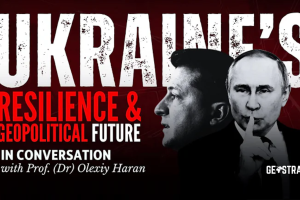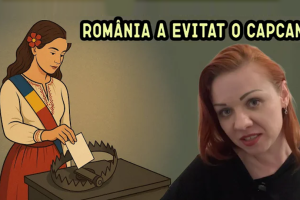Ukraine's gloom over Trump lifts as Tillerson visits

U.S. Secretary of State Rex Tillerson said on Sunday Russia must make the first move to bring peace to eastern Ukraine, during a first official visit to Kiev that President Petro Poroshenko called a powerful signal of U.S. support.
Tillerson said Washington's primary goal was the restoration of Ukrainian territorial sovereignty, in comments that will cheer Kiev and show ties are warmer than many in Ukraine dared hope after U.S. President Donald Trump took office.
Ukraine has counted on U.S. support against Russia since a pro-Western government took power following street protests in 2014 that ousted a Kremlin-backed president.
But some of Trump's comments during the election campaign last year, from appearing to recognize Crimea as part of Russia to contemplating an end to U.S. sanctions, stoked fears in Kiev that Trump would mend ties with Moscow at Ukraine's expense.
Such fears appear to have eased, for the moment.
Trump has not cut a deal with Russian President Vladimir Putin behind Ukraine's back over the future of Crimea and Donbass, nor have sanctions on Russia been lifted.
"I've been very clear in my discussions with Russian leadership, on more than one occasion, that it is necessary for Russia to take the first steps to de-escalate the situation in the east part of Ukraine, in particular by respecting the ceasefire," Tillerson said.
Relations between Ukraine and Russia went into freefall after Moscow's annexation of Crimea and the subsequent outbreak of a pro-Russian insurgency in the eastern Donbass region that has killed more than 10,000 people.
"We're extremely satisfied with the level of cooperation with our American partners," Poroshenko said during Sunday's talks with Tillerson.
Speaking to reporters later, Poroshenko said: "In today's visit we see a powerful signal of U.S. support in our common fight for democratic values, for freedom and democracy."
NO BIG RESET

A Group of 20 summit in Hamburg on Friday and Saturday was a qualified success for Russia. Putin had his first face-to-face encounter with Trump and avoided confrontation with other leaders about his country's conduct. Putin said the meeting laid the groundwork for some improvement in U.S.-Russian ties.
But the summit did not produce progress on the issue that vexes Russia most: there is no sign that Trump wants to, or even could, lift U.S. sanctions that are hurting the Russian economy.
"I think overall things are in a better place for Ukraine vis-à-vis the U.S.," said Fabrice Pothier, senior associate at Rasmussen Global, a consultancy founded by the former NATO Secretary General Anders Fogh Rasmussen, who advises Poroshenko.
That's compared to six months ago "when there was a clear state of flux on whether Trump wanted to go for an early, big reset with Putin," Pothier said.
Instead, Poroshenko met Trump in June before Putin did, and, according to the Ukrainian side, was able to convey effectively Ukraine's plight in their 35-minute talk.
Ukraine also flaunted two defense agreements it expects to be signed in the coming months and welcomed as a friendly face the Trump administration's appointment of Kurt Volker as a special representative to the Minsk peace process.
A career diplomat, Volker is a former aide to Republican Senator John McCain, a Russia hawk who wants the United States to supply lethal weapons to Ukraine, a move the previous administration under Barack Obama shied away from.
CALM NERVES
 "People in general felt very frustrated, very nervous about that (Trump's candidacy) and what could happen," Olexiy Haran, a political science professor at the National University of Kyiv-Mohyla Academy, said.
"People in general felt very frustrated, very nervous about that (Trump's candidacy) and what could happen," Olexiy Haran, a political science professor at the National University of Kyiv-Mohyla Academy, said.
The election of a Republican-controlled Congress, in which senior members from both parties advocate greater support for Ukraine against Russia, helped calm nerves, he said.
"Personal relations were established," Haran said of Poroshenko's June 20 meeting with Trump. "This means that Ukraine is not isolated."
At the same time, the United States has imposed new sanctions on Russia, depriving Putin and the Russian economy of an investment boost ahead of the presidential election in March 2018, timed to coincide with the anniversary of the Crimea takeover.
Investigations into alleged Russian interference in the election that got Trump into power will also make it harder for Trump to give Putin concessions, even if he wants to.
Ahead of the G20 summit, Trump called on Russia to stop destabilizing Ukraine, a charge that chimes with Kiev's view of the conflict but one that Moscow rejects.
"Trump boxed himself into a corner on Russia," Pothier said.
"Even if he really wanted to do a reset, he just, because of all the actions he took, all the statements he made during the campaign and since he has been elected president, has greatly constrained his room for maneuver with Russia."
Former U.S. Ambassador to Russia Michael McFaul summed up the jitters many in Kiev felt in November when he predicted Ukraine would be the "biggest loser" from a Trump victory.
A senior Western diplomat said the precise direction of Trump's policy on Ukraine remained uncertain because of the president's lack of constancy and a lack of clarity about Volker's role.
"The Ukrainians are in a situation much like many other countries where they feel there's a thought through American policy .. but they are still wondering what will happen," he said, on condition of anonymity.
The Ukrainians will also want reassurance that what Tillerson called the "positive chemistry" between Trump and Putin does not bode ill for Kiev.
On Sunday, Trump on Twitter hailed a U.S.-Russian brokered ceasefire that came into effect in parts of Syria, saying: "Now it is time to move forward in working constructively with Russia!"
(Additional reporting by Natalia Zinets in Kiev and Christian Lowe in Moscow; writing by Matthias Williams; Editing by Janet Lawrence)








